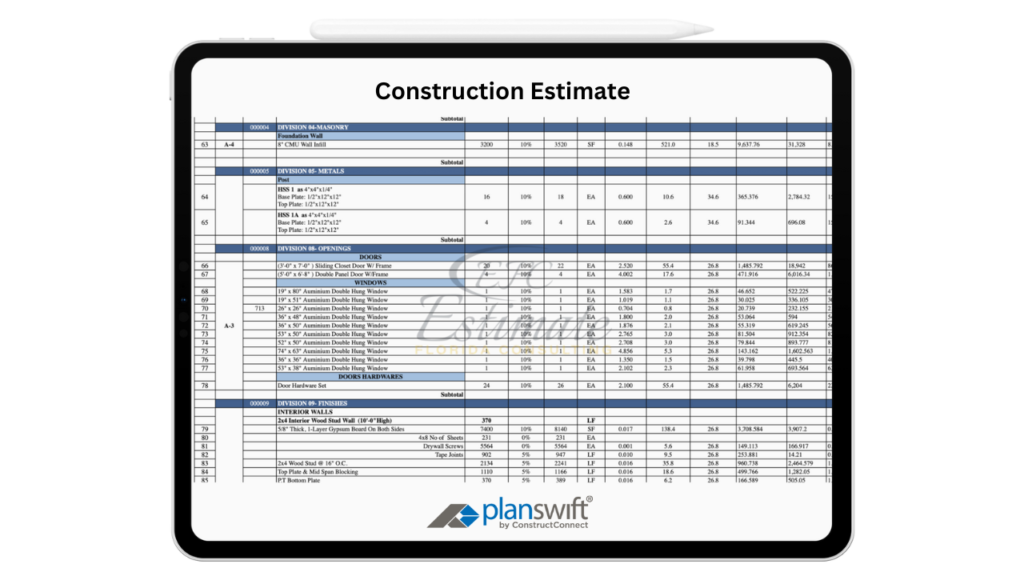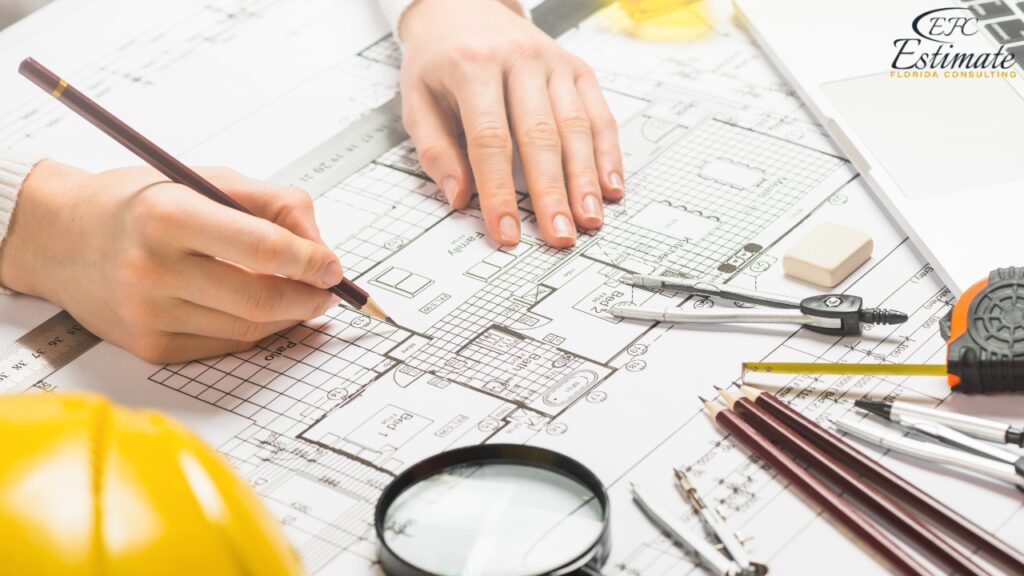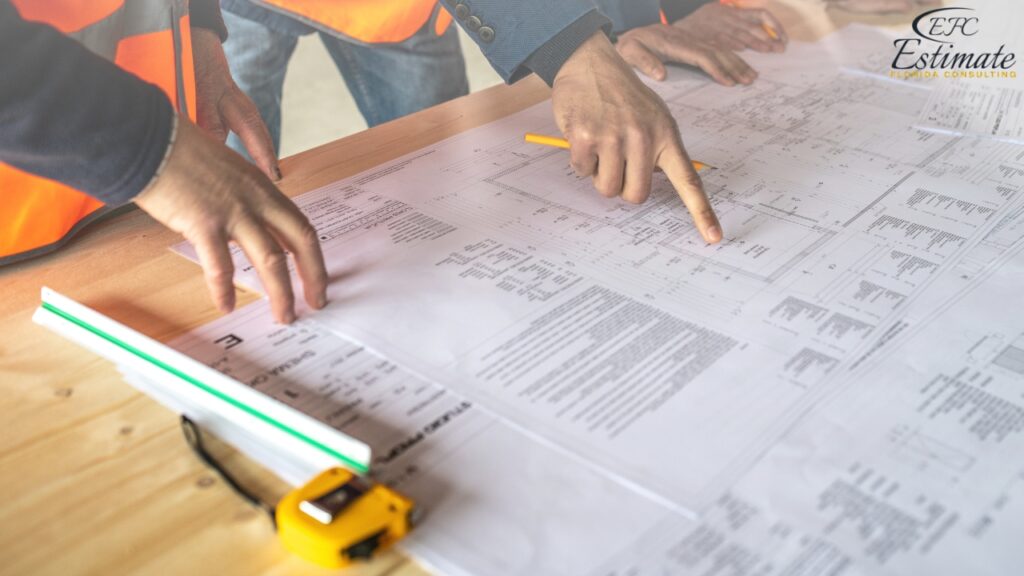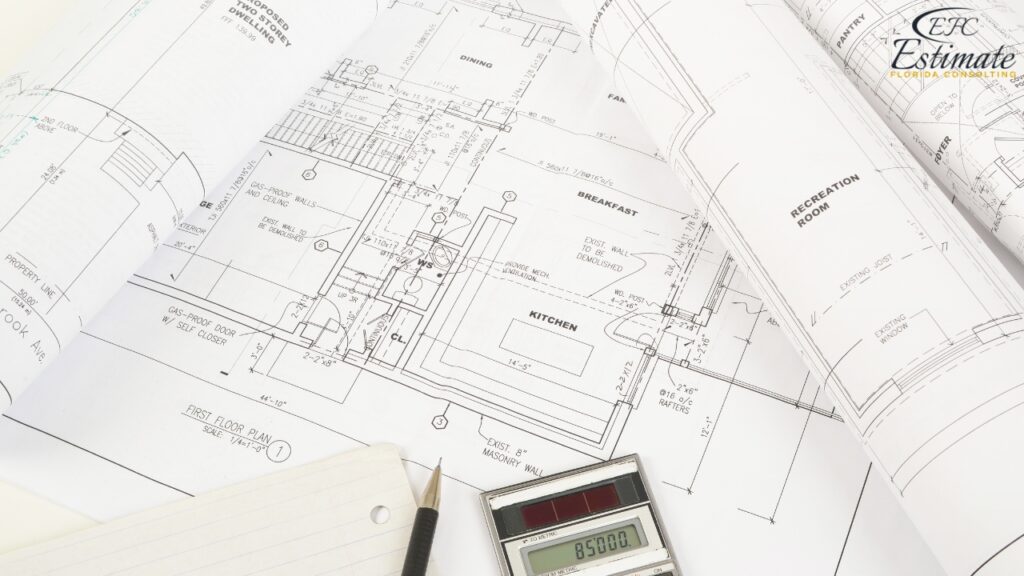90% More Chances to Win Projects With Our Estimate!
- Multi-Family Building
- Hotel Building
- Hospital Building
- Warehouse Building
- School & University Building
- High-Rise Building
- Shopping Complex
- Data Center Building

Accurate budget estimation is crucial for the success of construction projects. It provides a structured approach to allocating funds, managing expenses, and mitigating financial risks. A precise estimate ensures that stakeholders understand the financial commitments required, allowing them to plan effectively and avoid potential pitfalls. When budgets are underestimated, the consequences can be severe, leading to delays, reduced quality, and sometimes project abandonment.

Conceptual estimating serves as a preliminary approach to gauge the potential costs of a project based on initial ideas and specifications. This type of estimating is especially beneficial during the feasibility phase, allowing stakeholders to assess the viability of a project before significant investments are made. Conceptual estimates are typically less detailed and rely on historical data and industry benchmarks, providing a ballpark figure that helps in decision-making.
Detailed cost estimation involves a thorough breakdown of all components related to a project, including materials, labor, and equipment. This service is crucial once designs are finalized, as it delivers a comprehensive financial projection that assists contractors and developers in understanding their total costs. Detailed estimates are often used to establish contract prices and secure financing, ensuring all parties are aligned with the expected expenses.
Preliminary estimating is an intermediate step that refines the initial estimates during the design development phase. As more information about the project becomes available, estimators adjust the figures to reflect the specifics of materials and labor requirements. This stage is essential for identifying potential cost-saving opportunities and ensuring that the project remains financially viable as it progresses toward completion.
Final budget estimating is conducted just before construction begins, offering the most accurate reflection of total project costs. This estimate incorporates all adjustments made during the design phase and includes contingencies for unforeseen expenses. Final estimates are essential for securing loans and formalizing contracts, as they provide a detailed overview of financial commitments that stakeholders can expect throughout the construction process.
Pre-construction budget estimation serves as a foundational assessment of potential costs before any construction activities begin. This stage involves analyzing project plans, site conditions, and local market trends to provide stakeholders with an early understanding of budget requirements. Accurate pre-construction estimates help in establishing project feasibility, allowing clients to allocate funds and secure financing more effectively.
During the design phase, estimators collaborate closely with architects and engineers to refine budget estimates. This stage allows for adjustments based on design changes, material selections, and regulatory requirements. As designs evolve, estimators provide updated forecasts that guide decision-making and help clients understand how changes impact overall project costs.
Post-construction estimation focuses on the final analysis of project costs after completion. This stage involves reconciling budgets with actual expenditures, allowing stakeholders to assess their financial performance and learn from the project. Post-construction estimates are vital for closing out contracts, evaluating contractor performance, and refining future budgeting processes based on historical data.
Material costs are one of the most significant factors in budget estimation, representing a substantial portion of overall project expenses. Professional estimators must account for the current market rates of materials, potential price fluctuations, and availability. By providing a detailed analysis of material costs, estimators help clients make informed decisions about sourcing and procurement, ensuring they remain within budget constraints.
Labor costs are another critical component of budget estimation, influenced by the scope of work and local wage rates. Estimators analyze the required workforce, including skill sets and productivity levels, to provide an accurate labor cost projection. Understanding labor costs is vital for managing payroll and scheduling, as it directly impacts project timelines and overall profitability.
The costs associated with construction equipment can vary significantly depending on the project’s scale and complexity. Estimators need to consider the costs of renting or purchasing equipment, maintenance, fuel, and operator expenses. A well-prepared estimate includes all necessary equipment costs to prevent budget overruns and ensure that the project is completed efficiently.
Contractors typically include a markup for overhead and profit in their bids to cover operational expenses and generate revenue. This markup accounts for various factors, including insurance, utilities, administrative costs, and profit margins. Accurately estimating overhead and profit is essential for ensuring that the project is financially viable and aligns with the contractor’s business objectives.
Contingency allowances are a critical component of budget estimation, designed to address unforeseen circumstances such as design changes, material shortages, or unexpected site conditions. A prudent budget estimate includes a contingency percentage to mitigate risks and cover potential overruns, providing a buffer that helps ensure project completion without financial strain.

Estimating for residential projects encompasses a comprehensive analysis of the costs associated with building homes, including materials, labor, and permits. Accurate residential construction cost estimates are vital for homeowners and developers to maintain budget control and ensure project feasibility. Estimators take into account various factors, such as architectural designs and local market conditions, to provide realistic financial projections.
Custom home budget estimation involves tailored services that consider the unique preferences and specifications of homeowners. This personalized approach requires detailed consultations to understand the homeowner’s vision, allowing estimators to provide accurate cost projections that align with their expectations. Custom budget estimates ensure that homeowners have a clear understanding of the financial implications of their design choices.
Renovation and remodel estimating focuses on assessing the costs associated with upgrading or altering existing structures. This process involves analyzing current conditions, estimating the cost of new materials, and calculating labor expenses for skilled trades. Accurate renovation estimates are essential for homeowners looking to enhance their properties while staying within their budget.
Budget estimating for office buildings involves evaluating various factors such as size, location, and intended use. Estimators analyze the costs of materials, labor, and compliance with local regulations to provide a comprehensive financial outlook. Accurate office building budget estimates are essential for developers and investors to ensure that projects remain profitable and meet their financial goals.
Estimating costs for retail spaces requires a thorough understanding of market trends and consumer behavior. Estimators analyze site-specific factors, including lease agreements and design requirements, to provide accurate retail space cost estimates. Understanding these costs helps retailers make informed decisions about site selection and financial planning.
Estimating costs for multi-story buildings presents unique challenges due to increased complexity and scale. Professional estimators assess the structural requirements, safety regulations, and construction methods to deliver accurate budget projections. Understanding the financial implications of multi-story construction is essential for developers and investors to ensure successful project completion.

New construction budgeting involves a comprehensive assessment of all costs associated with building a new structure from the ground up. This process requires detailed planning and accurate estimates to ensure that projects are completed within budget and on schedule. New construction budget estimates consider all aspects, from site preparation to final finishes.
Remodeling budget estimating requires a nuanced approach, as it involves working within existing structures. Estimators must consider the costs of demolition, structural modifications, and new installations while accounting for potential surprises during renovation. Accurate remodeling estimates help homeowners and developers manage expenses effectively, ensuring that projects remain financially viable.
Estimating costs for infrastructure projects, such as roads, bridges, and utilities, requires a deep understanding of engineering and regulatory requirements. Estimators analyze various factors, including material specifications, labor needs, and environmental considerations, to provide accurate budget projections. Infrastructure project estimates are essential for securing government funding and ensuring successful project delivery.
Unit cost estimating involves calculating costs based on individual components or units, making it easier to scale up estimates for larger projects. This technique allows estimators to develop detailed financial projections that account for variations in material and labor costs. Unit cost estimates are particularly useful for clients looking to compare different project scopes and determine the most cost-effective approach.
Assembly estimating focuses on grouping similar tasks and materials to streamline the estimation process. This technique allows estimators to provide a comprehensive overview of project costs while simplifying complex calculations. Assembly estimates are beneficial for clients seeking to understand the financial implications of various construction assemblies and methods.
Square foot estimating provides a broad overview of costs based on the total square footage of a project. This method is especially useful for quick assessments during the early stages of planning. While square foot estimates are less detailed, they serve as valuable tools for clients to gauge project costs quickly and make informed decisions about budgets.

Building Information Modeling (BIM) has revolutionized the way budget estimates are generated. By creating a digital representation of a project, estimators can analyze costs with unparalleled accuracy. BIM allows for real-time updates and collaborative planning, making it easier for all stakeholders to understand project costs and make informed decisions.
Advanced estimating software tools enhance the accuracy and efficiency of budget estimating processes. These tools allow estimators to input data, generate reports, and analyze costs seamlessly. By utilizing software, construction professionals can improve their budgeting practices, leading to more accurate estimates and better project outcomes.
3D modeling technology has transformed traditional estimating practices by providing a visual representation of projects. This technology allows estimators to identify potential issues early in the planning process, leading to more accurate cost projections. By integrating 3D modeling into budget estimating services, stakeholders can collaborate more effectively and reduce the risk of budget overruns.
Selecting the right estimating service is critical to the success of your construction project. Consider the following factors when choosing an estimator:

Budget estimating services are indispensable for successful construction projects. By understanding the various types of estimates, stages of construction, and key components involved, stakeholders can make informed financial decisions that drive project success. As the construction industry continues to evolve, leveraging advanced estimating techniques and technologies will be crucial for enhancing accuracy and efficiency in budget estimation. Investing in professional estimating services not only ensures projects stay within budget but also paves the way for better planning, execution, and overall satisfaction for all parties involved.
Budget estimates are influenced by material costs, labor rates, equipment expenses, overhead, and project complexity.
Technology, such as BIM and estimating software, enhances accuracy and efficiency, allowing for real-time updates and collaborative planning.
Contingency allowances help address unforeseen expenses, ensuring projects remain financially viable even when unexpected costs arise.
Preliminary estimating provides an early ballpark figure, while detailed estimating offers a comprehensive breakdown of all project costs based on finalized plans.
Consider factors such as experience, references, technological capabilities, communication skills, and cost structure when selecting an estimating service.
Projects of all sizes, from residential builds and renovations to large-scale commercial constructions, can benefit from budget estimating services. Whether it’s a home remodel or a corporate office construction, accurate estimates are essential.
At Estimate Florida Consulting, we offer detailed cost estimates across all major trades, ensuring no part of your project is overlooked. From the foundation to the finishing touches, our trade-specific estimates provide you with a complete and accurate breakdown of costs for any type of construction project.

We take pride in delivering accurate, timely, and reliable estimates that help contractors and builders win more projects. Our clients consistently praise our attention to detail, fast turnaround times, and the positive impact our estimates have on their businesses.
Estimate Florida Consulting has helped us win more bids with their fast and accurate estimates. We trust them for every project!

Submit your project plans, blueprints, or relevant documents through our online form or via email.
We’ll review your project details and send you a quote based on your scope and requirements.
Confirm the details and finalize any adjustments to ensure the estimate meets your project needs.
Receive your detailed, trade-specific estimate within 1-2 business days, ready for your project execution.

561-530-2845
info@estimatorflorida.com
Address
5245 Wiles Rd Apt 3-102 St. Pete Beach, FL 33073 United States
561-530-2845
info@estimatorflorida.com
Address
5245 Wiles Rd Apt 3-102 St. Pete Beach, FL 33073 United States
All copyright © Reserved | Designed By V Marketing Media | Disclaimer